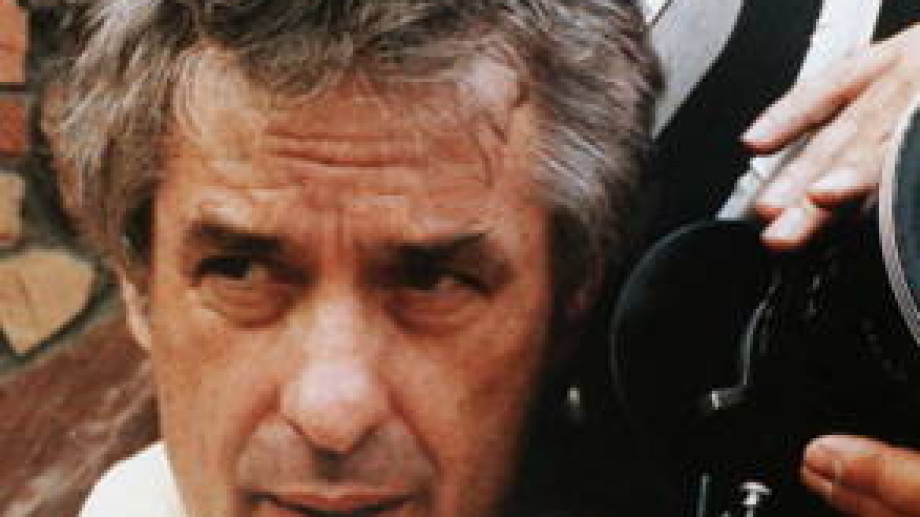
John Cassavetes. Image courtesy of THE KOBAL COLLECTION.
In 1969, the French television program Cinéastes de notre temps aired an interview with John Cassavetes, who had just finished filming Faces. Prior to this he was known for his landmark independent film Shadows and two studio products, Too Late Blues and A Child is Waiting. In the interview, which opens the New York Film Festival's Cinéastes/Cinema of Our Time section on October 3, Cassavetes jumps around with an uncontrollable energy. He cracks jokes at one moment and shifts to a deadly serious tone the next. Seeing him in his natural habitat, surrounded by a crew as dedicated as he was, it’s easy to see how he got the incredible talent he used in his most famous works to stick with him through thick and thin. It’s hard not to get caught up in his passion when he describes filmmaking not in terms of desires, but needs. That is to say, Faces was not a film Cassavetes wanted to make, but one he had to make.
Cinéastes, along with the festival's Cinema Reflected sidebar, offers something that may be more common in the era of DVD special features, but is still relatively rare—access to the people who not only made the movies we love, but are the real, living stuff film’s myths are made of. The idea of reflecting cinema is not new. Some of the medium’s greatest and most acclaimed works do precisely that, from Sunset Blvd. through Le Mépris down to The Artist. The distinction between a narrative and documentarian approach to the cinema is not nearly as obvious as it may seem at first glance. While documentaries have long been saddled with the notion of an objective or critical distance not granted to fiction films, filming filmmakers always involves a willful participation in the crafting of certain narratives. When Cassavetes bounces around the room so effervescently, he creates a particular field of possibilities in the reception of his films. Regardless of the debates over the importance of artistic intentionality, in work as intensely personal as Faces, Husbands or A Woman Under the Influence, the personality of the auteur is often applied to the final work. Consequently, these films are not just great, but brimming with life.

Rodney Ascher's Room 237
Room 237, Rodney Ascher’s journey into the heart of The Shining, is much more explicit in its collaboration with mythmaking. By bringing together a selection of interviewees to discuss the possible meanings of Stanley Kubrick’s horror masterpiece, Ascher stakes a claim for the importance of continuing to talk about films. Film festivals draw particular audiences, namely those committed to fostering support for the medium. For these people, a name like Kubrick carries immense weight. Room 237, however, reaches beyond this group. Ascher brings in a playwright, a journalist and a professor among others to try and get at the core of a multilayered work. The diversity of this group harkens back to cinema’s original populist promise: it was art for everybody.
Cinema Reflected gives the audiences glimpses of Ingmar Bergman, Roberto Rossellini, Liv Ullmann, Roman Polanski and many more. What makes the documentary on film so powerful, so necessary to a deeper understanding and greater enjoyment of the movies themselves, is that it elides the distance between the filmmakers and the filmgoers. At the same time, it recasts them in their naturally heroic roles. Just as Fritz Lang in Le Mépris only embellishes the stature of the artist behind M, The War of the Volcanoes offers up one of cinema’s greatest love stories. It is full of scandal, betrayal and desire with Ingrid Bergman in a starring role. What more could a cinephile ask for?
Cinéastes/Cinema of Our Time runs from October 3 – 14 as part of NYFF's Masterworks section. Cinema Reflected is now playing in NYFF Special Events and continues through October 12.
Blair McClendon is a member of the NYFF Critics Academy program. You can follow him on Twitter at @GoodbootsFilm.



